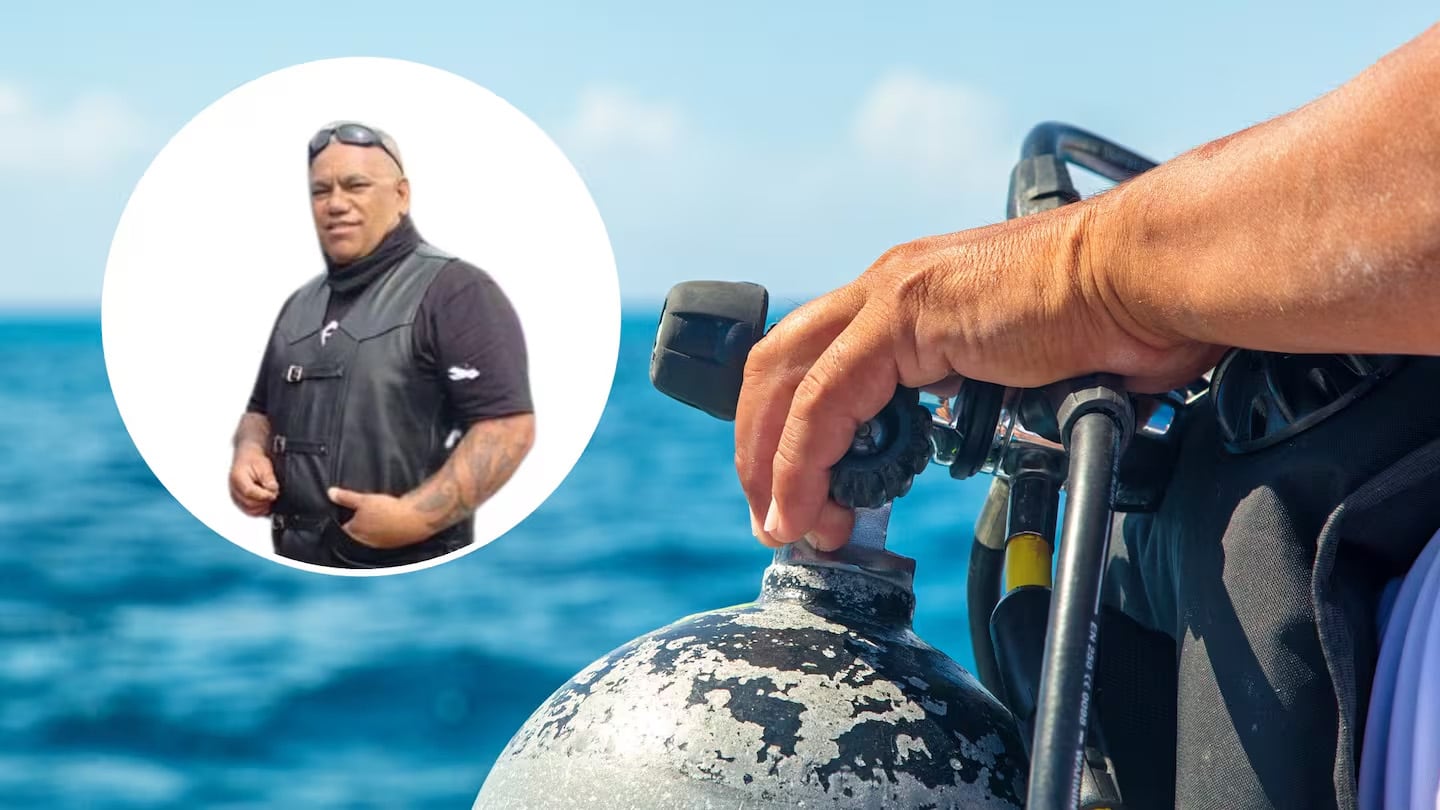Gideon Te Ahuru was an experienced diver and had been scuba diving for 30 years.
On Waitangi Day the 60-year-old and his brother-in-law took a boat round to Eastbourne in Wellington to look for kina.
Te Ahuru went into the water with scuba gear, sending up bags of kina to the boat waiting above. But, after 20 minutes, he surfaced, coughing up blood.
Te Ahuru was pulled onto the boat and rushed to shore, where his brother-in-law attempted CPR. He died at the scene.
Now his death has prompted a warning from the coroner that divers should be medically fit before getting in the water, and their equipment should be regularly serviced and checked over.
After his death, an autopsy revealed that he had hypertensive atherosclerotic cardiovascular disease, which was exacerbated by the physical exertion of diving.
A police dive squad report also found that Te Ahuru’s second-stage regulator on his diving equipment was faulty, his dive cylinder was out of testing date and that he had breathed it empty during the dive.
This, combined with the weight of the catch bag he was using, would have caused the dive cylinder to empty faster than expected, because he would be using more air, meaning he needed to ascend to the surface more quickly than normal.
The autopsy concluded that his cardiovascular disease, which he was on medication for, combined with a rapid ascent, would have placed “significant stress” on his body.
A domino effect with fatal consequences
Te Ahuru was described as a “well-loved, tolerant and gentle man” who worked as a builder, but also drove a bus for children at the Lower Hutt school where his wife is principal. He also gave his time to Tane Ora, a community initiative to support the health of Māori men.
Tributes posted online after his death described him as a “stalwart” of the community, and a treasured koro to his grandchildren.
He was also a qualified and experienced diver, boat master and had worked as an honorary fisheries officer. His wife said he was meticulous about safety, weather conditions and equipment and was respectful of the ocean.
According to the coroner’s findings, Te Ahuru had been taking medication for hypertension since 2016, and had been prescribed medication for high cholesterol several years later, but had stopped taking it.
After a cardiovascular assessment in 2020, he was advised to start taking that medication again as he had a 17% chance of having a significant cardiovascular event in the next five years.
At his last consultation in December last year, he had excellent blood pressure, but complained about breathlessness while exercising, and was referred to a cardiologist. However, he died before he could be seen by that specialist.
There was no “diving alert” on Te Ahuru’s medical records, and he had not requested a review of his diving fitness.
A doctor who gave advice to the dive squad said that Te Ahuru’s medications indicated he was a high risk of a significant cardiovascular event and it wasn’t advisable for him to be diving.
Coroner Rachael Schmidt-McCleave said that various factors contributed to Te Ahuru’s death and “on their own may not necessarily be fatal, combined they had a domino effect with fatal consequences”.
“The contributory factors of Mr Te Ahuru’s hypertension and angina and the medications for such (contraindicative to diving), the out-of-date dive cylinder, the faulty second stage regulator, and the heavy sacks of kina causing increased effort by Mr Te Ahuru, have all combined on 6 February 2025 to create the situation which led to Mr Te Ahuru’s death,” the coroner found.
“I extend to Mr Te Ahuru’s whānau and friends my sincere condolences for the loss of such a respected and respectful, as well as much-loved, man.”
By Jeremy Wilkinson, Open Justice reporter.




